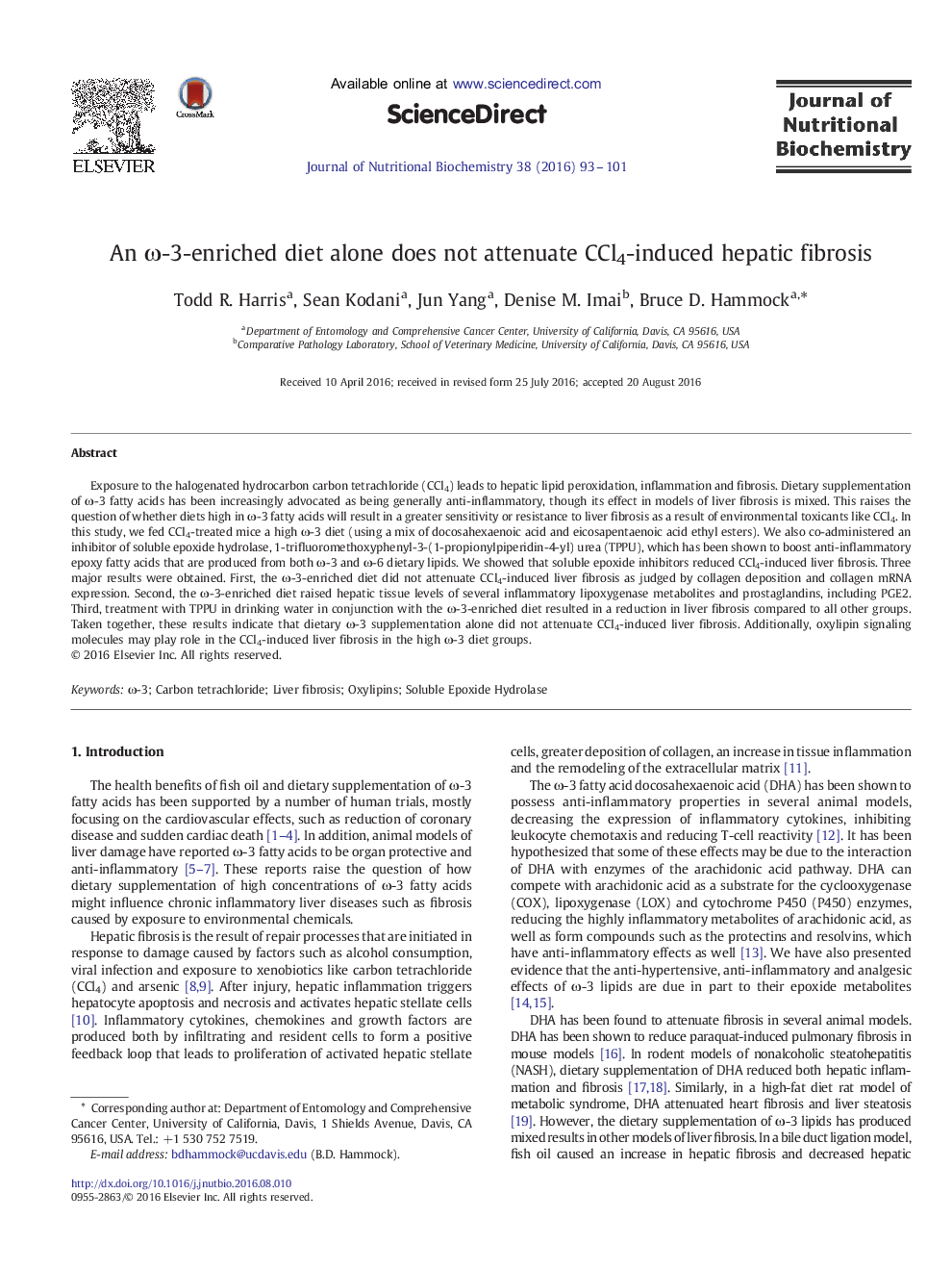| کد مقاله | کد نشریه | سال انتشار | مقاله انگلیسی | نسخه تمام متن |
|---|---|---|---|---|
| 8336514 | 1540630 | 2016 | 9 صفحه PDF | دانلود رایگان |
عنوان انگلیسی مقاله ISI
An Ï-3-enriched diet alone does not attenuate CCl4-induced hepatic fibrosis
دانلود مقاله + سفارش ترجمه
دانلود مقاله ISI انگلیسی
رایگان برای ایرانیان
کلمات کلیدی
موضوعات مرتبط
علوم زیستی و بیوفناوری
بیوشیمی، ژنتیک و زیست شناسی مولکولی
زیست شیمی
پیش نمایش صفحه اول مقاله

چکیده انگلیسی
Exposure to the halogenated hydrocarbon carbon tetrachloride (CCl4) leads to hepatic lipid peroxidation, inflammation and fibrosis. Dietary supplementation of Ï-3 fatty acids has been increasingly advocated as being generally anti-inflammatory, though its effect in models of liver fibrosis is mixed. This raises the question of whether diets high in Ï-3 fatty acids will result in a greater sensitivity or resistance to liver fibrosis as a result of environmental toxicants like CCl4. In this study, we fed CCl4-treated mice a high Ï-3 diet (using a mix of docosahexaenoic acid and eicosapentaenoic acid ethyl esters). We also co-administered an inhibitor of soluble epoxide hydrolase, 1-trifluoromethoxyphenyl-3-(1-propionylpiperidin-4-yl) urea (TPPU), which has been shown to boost anti-inflammatory epoxy fatty acids that are produced from both Ï-3 and Ï-6 dietary lipids. We showed that soluble epoxide inhibitors reduced CCl4-induced liver fibrosis. Three major results were obtained. First, the Ï-3-enriched diet did not attenuate CCl4-induced liver fibrosis as judged by collagen deposition and collagen mRNA expression. Second, the Ï-3-enriched diet raised hepatic tissue levels of several inflammatory lipoxygenase metabolites and prostaglandins, including PGE2. Third, treatment with TPPU in drinking water in conjunction with the Ï-3-enriched diet resulted in a reduction in liver fibrosis compared to all other groups. Taken together, these results indicate that dietary Ï-3 supplementation alone did not attenuate CCl4-induced liver fibrosis. Additionally, oxylipin signaling molecules may play role in the CCl4-induced liver fibrosis in the high Ï-3 diet groups.
ناشر
Database: Elsevier - ScienceDirect (ساینس دایرکت)
Journal: The Journal of Nutritional Biochemistry - Volume 38, December 2016, Pages 93-101
Journal: The Journal of Nutritional Biochemistry - Volume 38, December 2016, Pages 93-101
نویسندگان
Todd R. Harris, Sean Kodani, Jun Yang, Denise M. Imai, Bruce D. Hammock,